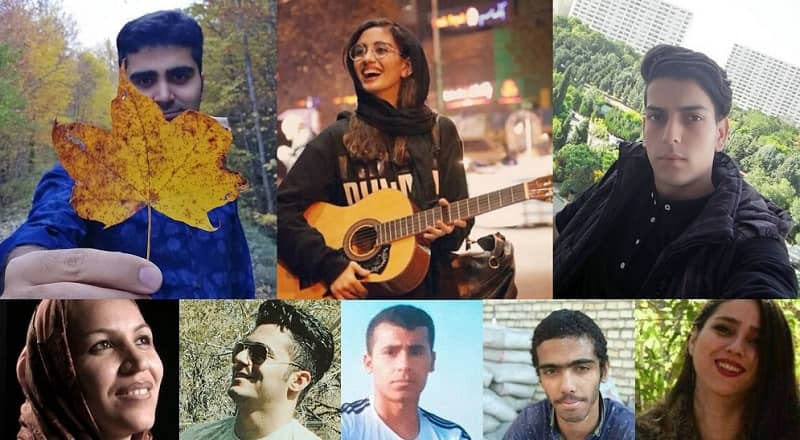
The second round of hearings in the Aban Tribunal began in London on February 4, with the unofficial court set to hear the testimonies of 110 witnesses of the atrocities committed during the November 2019 protests in Iran at the hands of the Iranian regime’s security forces.
The People’s Mojahedin Organization of Iran (PMOI/MEK) said, “In the span of a few days, regime security forces shot and killed more than 1,500 civilians, wounded thousands, and arrested many more.”
The witnesses for this latest round are set to give harrowing accounts of how the major uprising in November 2019 was brutally suppressed by the regime. Among them are protesters, former prisoners, hospital personnel, family members of civilians who were murdered, and even security and prison officials.
One of the witnesses who testified last Friday is the sibling of a woman who was murdered by security forces during the uprising. They explained how their sister was attending to a youth who had been injured but was shot from behind and killed instantly. Her body was recovered by the security forces and taken away on a bus.
The witness said, “My brother, brother-in-law, and mother wanted to get her body from the hospital. But they were told that the body had been sent to the coroner’s office in Bagher Abad, Behesht-e Zahra. My brother went to the coroner’s office but was told that the body has not been delivered there.”
In a desperate attempt to locate her body, the family continued to make several trips to the coroner’s office, before being told to pay a fee of 200 million rials for expenses in order to claim the body. This figure was later reduced to 45 million rials and the woman’s body was released back to the family, but they were banned from holding a funeral ceremony and only permitted to two attendees at the woman’s burial.
Another witness also took to the stand, explaining to the court about the arbitrary arrests carried out by the regime, as well as the conditions faced by prisoners in the regime’s prisons.
The witness said, “None of the people arrested at the rallies in the streets or afterward by the Basij and Revolutionary Guards and the State Security Force, were given due process on their charges or given any rights.”
They recalled the State Security Force, along with plainclothes agents, infiltrating the peaceful rallies, before brandishing their firearms and shooting people at close range with no mercy. These incidents happened across Iran during the period of the uprising, injuring and killing thousands of people.
The witness stated, “They would beat and torture people they had arrested and taken to their detention centers. After the rallies ended and the situation became calm, these forces had free rein to torture those arrested. Or they would raid the homes of the people they thought would potentially participate in rallies the next day.”
In a bid to quell further unrest, people who had not taken part in any rallies, or were relatives of known protesters, were arrested, and in some cases imprisoned, as a result of the raids. Those people who ended up in the regime’s detention centers were treated akin to prisoners of war, and denied their most basic rights as detainees.
The MEK said, “The plaintiffs and prosecutors have pressed charges against 160 regime authorities for their role in the massacre of protesters, including regime supreme leader Ali Khamenei, then-president Hassan Rouhani, then-judiciary chief Ebrahim Raisi, Revolutionary Guards commander-in-chief Hossein Salami, and other national and local authorities.”